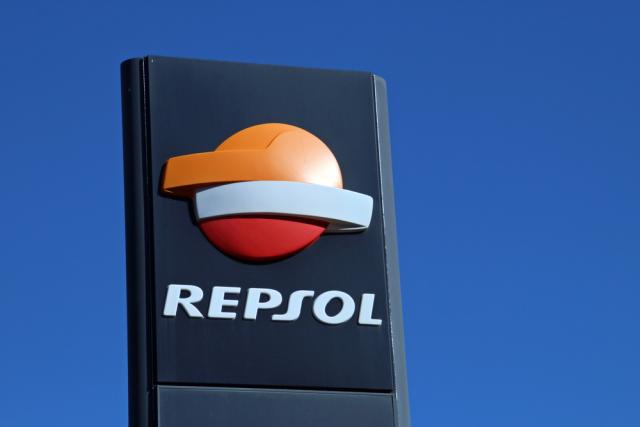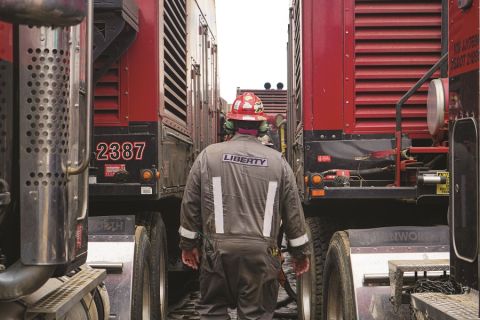
Spain’s Repsol S.A. has an eye on optimizing its Venezuelan natural gas production as well as consolidating the U.S. as a key growth area, according to the company’s CEO and executive director Josu Jon Imaz San Miguel. (Source: Shutterstock.com)
Spain’s Repsol SA is hyper focused on optimizing its natural gas production in Venezuela while also consolidating the U.S. as a key growth area, according to the company’s CEO and executive director Josu Jon Imaz San Miguel.
Imaz said Repsol is getting paid with oil shipments for its activities related to the Cardon IV gas project offshore Venezuela in which it’s partnered with Italy’s Eni SpA.
“We are being paid by these oil cargoes … three million barrels were transported to Spain [in the second quarter] and we expect to have an additional one-million-barrel cargo [from] this July,” Imaz said July 27 during Repsol’s second quarter 2023 earnings webcast with analysts.
“And that is now our full priority in Venezuela, optimizing our gas production in Cardon,” Imaz said. “There is room for a little increase of this production, de-bottlenecking the current plant, and we are going to be fully focused on that.”
During the call Imaz didn’t provide details about Cardon IV’s gas production levels or condensates, also produced from the project.
RELATED: Commentary: Venezuelan Gas, Trinidad and the US Meddling in the Middle
The Cardon IV block is located in the Gulf of Venezuela some 50 km offshore. The block is home to the 17 Tcf Perla gas field discovered in 2009. When it started producing in late 2015, Perla was the first gas field to be brought on production offshore Venezuela. Initial production in 2015 from Perla was around 150 MMcf/d.
Eni and Repsol initially expected production from Perla to peak at 1.2 Bcf/d in 2020 and to maintain that plateau until the end of 2036, according to details on Repsol’s website. The original business plan also stipulated that gas from the Perla field would be destined for domestic consumption in Venezuela.
Blacktip project FID 2 to 3 years out
Madrid-based Repsol, which also has key upstream assets in the U.S. and Trinidad and Tobago as well as Brazil, Colombia, the U.K. and Norway, continues with efforts to consolidate the U.S. as a key growth area.
In the Gulf of Mexico, the company boosted its stake in the Blacktip project to 50%. The project has estimated recoverable oil resources of 200 MMbbl, according to Imaz.
“The FID [final investment decision] is expected in the next 2, 3 years, contributing to the objective of maintaining a stable production of 30,000, 40,000 barrels a day in the Gulf [of Mexico],” Imaz said during the webcast.
“Our exposition to unconventionals, the Gulf of Mexico and Alaska confirms the U.S. as one of our key growth areas within our upstream portfolio,” Imaz said. “In unconventionals, we continue to closely monitor the gas pricing situation with a flexibility to adjust operations subject to market conditions. We are currently running one rig in Eagle Ford and only one in the Marcellus.”
Lower realizations Pressure net income
Repsol also reported net income of €308 million in the second quarter 2023, down by €839 million or 73% compared to €1,147 in second-quarter 2022, the company reported in its quarterly financial press release.
Repsol said its financial results were mainly impacted by lower realizations. The company said average Brent prices were down 31% and Henry Hub prices tumbled 71% compared to second-quarter 2022.
“Despite a lower commodity price context, mainly associated with gas prices, our shareholder distribution commitment through a combination of buybacks and dividends remains unchanged,” Imaz said. He added that Repsol expected uncertainty and volatility to continue as it related to slow growth in the world economy and the ongoing Ukraine war.
Repsol’s average upstream production was 596,000 boe/d in the second quarter 2023, up 10% compared to 540,000 boe/d in the second quarter 2022. The rise was mainly due “to the commissioning of new wells in the unconventional assets of Eagle Ford and Marcellus, the acquisition of Inpex assets in Eagle Ford, the absence of force-majeure in Libya, higher gas demand in Venezuela and higher production in YME in Norway,” Repsol said in the release.
Year-to-date production has averaged around 600,000 boe/d. Imaz said the company still expects production to average between 590,000 boe/d to 610,000 boe/d in 2023 and “probably in the high range of this production.”
Recommended Reading
Keeping it Simple: Antero Stays on Profitable Course in 1Q
2024-04-26 - Bucking trend, Antero Resources posted a slight increase in natural gas production as other companies curtailed production.
Oil and Gas Chain Reaction: E&P M&A Begets OFS Consolidation
2024-04-26 - Record-breaking E&P consolidation is rippling into oilfield services, with much more M&A on the way.
Exxon Mobil, Chevron See Profits Fall in 1Q Earnings
2024-04-26 - Chevron and Exxon Mobil are feeling the pinch of weak energy prices, particularly natural gas, and fuels margins that have cooled in the last year.
Marathon Oil Declares 1Q Dividend
2024-04-26 - Marathon Oil’s first quarter 2024 dividend is payable on June 10.
Talos Energy Expands Leadership Team After $1.29B QuarterNorth Deal
2024-04-25 - Talos Energy President and CEO Tim Duncan said the company has expanded its leadership team as the company integrates its QuarterNorth Energy acquisition.





